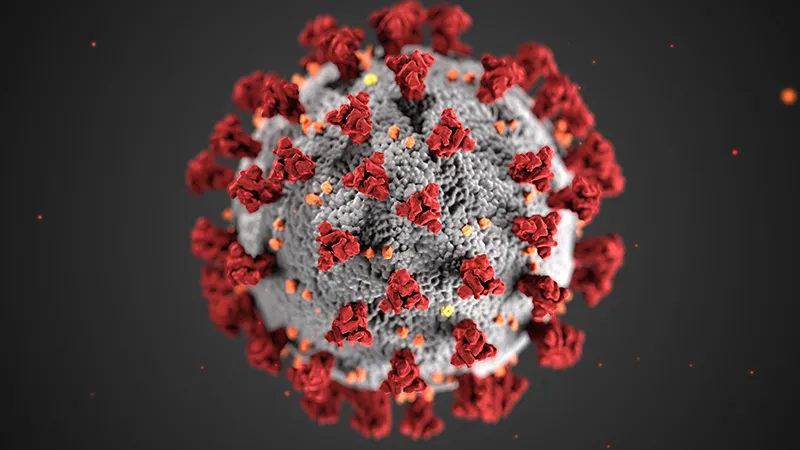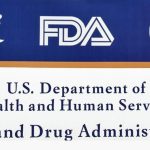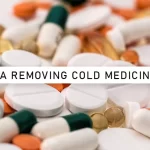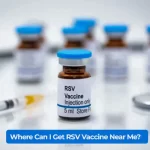Respiration Syncytial Virus (RSV) is a common viral contamination that impacts the respiration gadget, especially in babies and younger children. This virus can cause numerous signs and symptoms, ranging from moderate cold-like signs to severe respiratory distress. Know-how the signs of RSV is vital for early detection and appropriate scientific intervention.
Introduction: Respiratory Syncytial Virus Symptoms in Infants
Respiration Syncytial Virus, generally called RSV, is a contagious virus that ordinarily affects the respiratory machine. It’s miles a leading motive of breathing infections in infants and young kids, often resulting in slight to intense symptoms.
What is Respiratory Syncytial Virus (RSV)?
RSV is an epidemic that belongs to the paramyxovirus family. It causes infections in the lungs and respiration tract, leading to more than a few signs and symptoms. RSV is notably contagious and easily spreads via droplets from coughing or sneezing.
See Also: Early Signs of Colon Cancer in Women
How is RSV Transmitted?
RSV is transmitted via direct contact with breathing secretions, consisting of saliva and mucus, of an inflamed man or woman. It can also survive on surfaces, increasing the risk of transmission when an individual touches a contaminated surface and then touches their face. Respiratory Syncytial Virus Symptoms in Infants
Who is at Risk?
Infants, especially the ones under six months of age, are at a higher chance of developing extreme RSV symptoms and signs and symptoms. Premature toddlers and youngsters with weakened immune structures also are extra liable to excessive RSV infections.
Common Symptoms of RSV in Infants
Cold-Like Symptoms
In the early levels of RSV contamination, toddlers can also exhibit symptoms much like those of a commonplace cold. Those encompass a runny or stuffy nose, sneezing, and a mild cough.
Coughing and Wheezing
Because the virus progresses, babies might also revel in continual coughing and wheezing. The cough may sound wet or phlegmous, and wheezing occurs due to inflammation and narrowing of the airways. Respiratory Syncytial Virus Symptoms in Infants
Rapid Breathing
RSV can cause speedy and shallow respiratory, additionally referred to as tachypnea. Mother and father must reveal their toddler’s respiration fee and are searching for scientific attention if it turns surprisingly fast.
Difficulty Breathing
Severe RSV infections can cause difficulty breathing, often accompanied by flaring nostrils and chest retractions. This indicates that the baby is working hard to breathe.
Severe Symptoms that Require Immediate Attention
Cyanosis
Cyanosis, characterized via way of bluish discoloration of the pores and skin and lips, suggests a loss of oxygen in the blood. It is a serious symptom that demands immediate medical attention. Respiratory Syncytial Virus Symptoms in Infants
Dehydration
Infants with RSV may refuse to feed or experience vomiting, leading to dehydration. Dad and mom should watch for signs and symptoms and signs of dehydration, which include dry mouth, sunken eyes, and reduced urine output.
Apnea
RSV can cause apnea, where an infant stops breathing for short periods. This requires urgent medical intervention.
High Fever
While fever is a common symptom of many infections, a high fever accompanied by other RSV symptoms warrants medical attention.
Diagnosing RSV
Diagnosing RSV entails comparing the toddler’s symptoms, and clinical history, and likely carrying out a nasal swab or a blood take a look at. A medical doctor will decide the proper path of action based totally on the severity of the signs. Respiratory Syncytial Virus Symptoms in Infants
Treatment Options
For mild RSV cases, supportive care is often sufficient. This includes maintaining hydration, using a humidifier, and administering fever-reducing medications. In more excessive cases, antiviral medicinal drugs can be prescribed.
Preventive Measures
Practicing good hygiene is essential in preventing RSV. Normal handwashing, keeping off near touch with ill people, and disinfecting surfaces can lessen the threat of transmission. Palivizumab, a medication, is available for high-risk infants to protect against severe RSV.
See More: Virus
When to Seek Medical Help
Parents should seek medical help if their infant displays severe symptoms of RSV or experiences difficulty breathing, dehydration, or persistent fever. Respiratory Syncytial Virus Symptoms in Infants
RSV vs. Common Cold and Influenza
Distinguishing between RSV, the not-unusual cold, and influenza may be tough due to their comparable symptoms. Consulting a healthcare expert is crucial for a correct analysis.
Conclusion: Respiratory Syncytial Virus Symptoms in Infants
Breathing Syncytial Virus can cause a range of symptoms in babies, from slight cold-like symptoms to severe respiration distress. The early popularity of symptoms and well-timed clinical intervention are essential for ensuring the well-being of toddlers. Respiratory Syncytial Virus Symptoms in Infants











